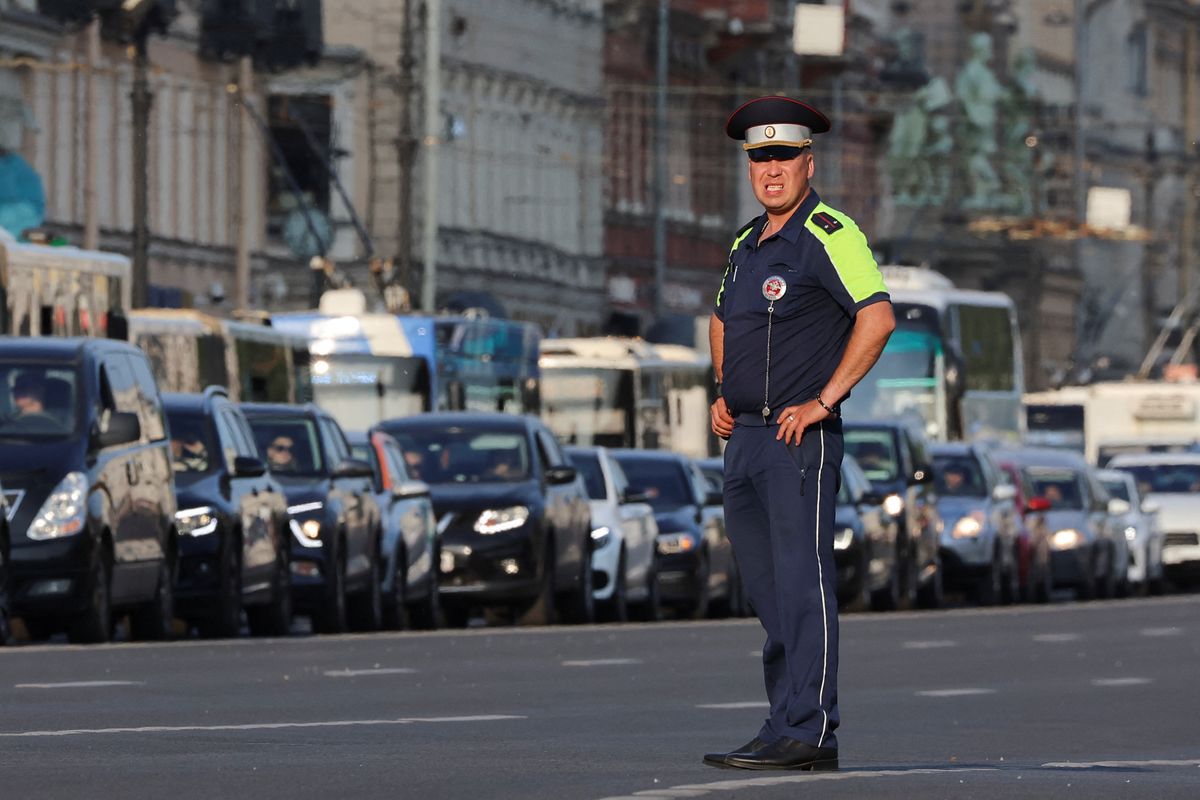China's car sales surge in Russia – the changing face of Russia's auto industry
Despite Russia’s efforts, things haven't gotten much better when it comes to domestic car production.

A few minutes every morning is all you need.
Stay up to date on the world's Headlines and Human Stories. It's fun, it's factual, it's fluff-free.
The backstory: A bunch of Western automakers decided to withdraw from the Russian auto industry over a combination of factors, including Western nations imposing sanctions on Russia and the ongoing Russia-Ukraine war. These things had a huge impact on the country’s auto industry, with investments, equipment and parts from abroad taking a major hit. In fact, new car sales in Russia took a nosedive, dropping 59% in 2022, according to the Association of European Businesses (AEB).
So, what's Russia doing about it? Well, it’s been looking for investments and partnerships with "friendly" countries, meaning those that haven't imposed sanctions on it. Moscow is also hoping to revive production at plants that were previously owned by Western carmakers.
The Russian government stepped in and bought up some assets from big players like Renault, Nissan and Toyota, but at rock-bottom prices. We're talking about French carmaker Renault selling its majority stake in carmaker Avtovaz to Russia’s state-owned NAMI for just one ruble (around US$0.01). Although both Renault and Nissan left the option open to buy them back within a six-year window.
But despite Russia’s efforts, things haven't gotten much better when it comes to domestic production. Car production in the country is now at its lowest level since the Soviet Union collapsed, with just 450,000 last year.
More recently: In April, AEB shared data revealing that Chinese car purchases in the first quarter of 2023 outpaced sales of Russia's own popular Lada vehicles. To give you an idea of the bigger picture, from January to March, the total sales of passenger and light commercial vehicles in Russia dropped by 44.7%, reaching only 153,477 vehicles. If we focus on March alone, sales were down 10.6% compared to the previous year, with only 48,414 cars sold.
The development: China has become the world's top car exporter, beating out Japan in the first quarter of this year. According to AlixPartners, a consulting firm, China has been going all out in the car sales game by selling so many cars to Russia. In just three months this year, China exported over a million vehicles and out of that, 112,000 were sent to Russia.
While Chinese car brands have faced some setbacks in Europe and the US, selling only 900,000 vehicles there in 2022. AlixPartners predicted that Chinese car sales in those markets could jump 67% by 2026. It even thinks that Chinese brands might disrupt Western markets. AlixPartners also predicted a 5% global surge in light vehicle sales this year, all thanks to the growing demand for electric cars. And in China, the world’s largest auto market, the firm expects domestic carmakers to outpace foreign rivals for the first time in over 40 years.
Key comments:
"Toyota confirms that it has concluded the transfer of its vehicle production plant to NAMI effective from March 31, 2023," said Toyota in a statement in March. "The agreement includes the full transfer of ownership of the plant buildings and land."
"Part of this is just Chinese companies are getting better, but some of it is overcapacity in China," said Agatha Kratz, a director at Rhodium Group, in January. "This is going to be a pain point. It could generate a really strong reaction in Europe in terms of trade protections."
"The automobile industry has seriously flopped this year, but nevertheless, I hope that we can launch the Moskvich plant in December with the help of the Industry and Trade Ministry," Interfax news agency quoted Moscow Mayor Sergei Sobyanin as saying last October.




Comments ()